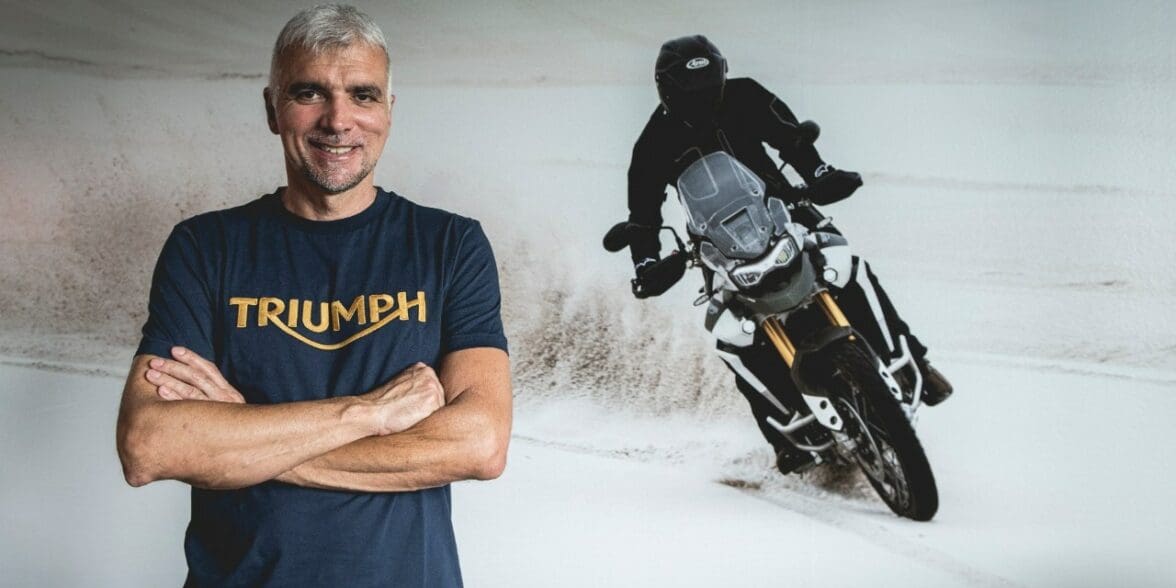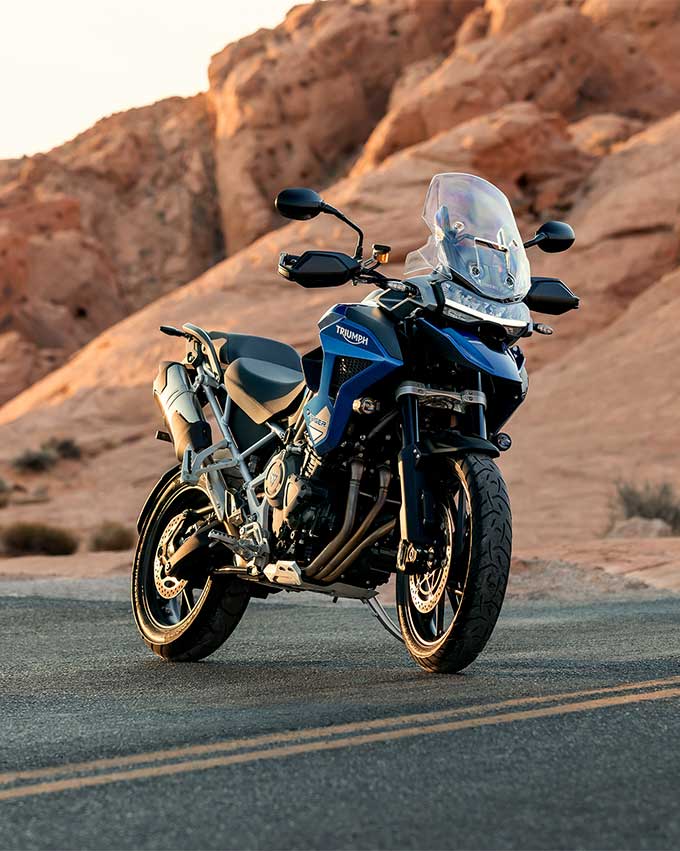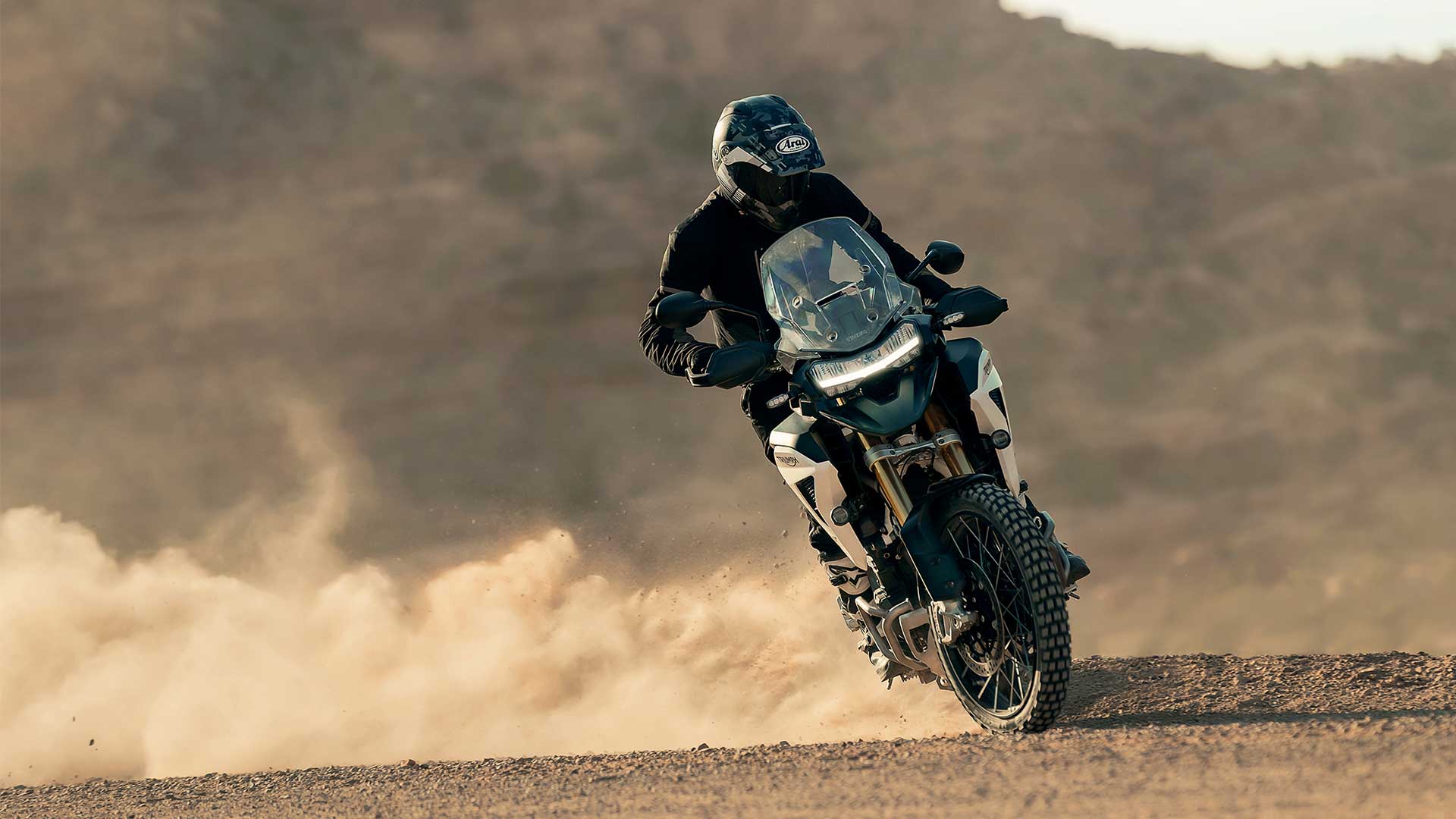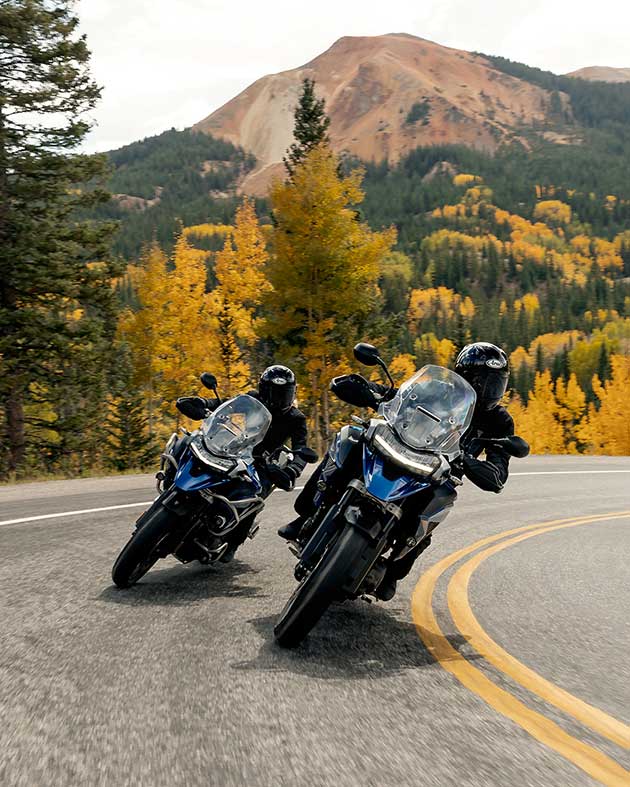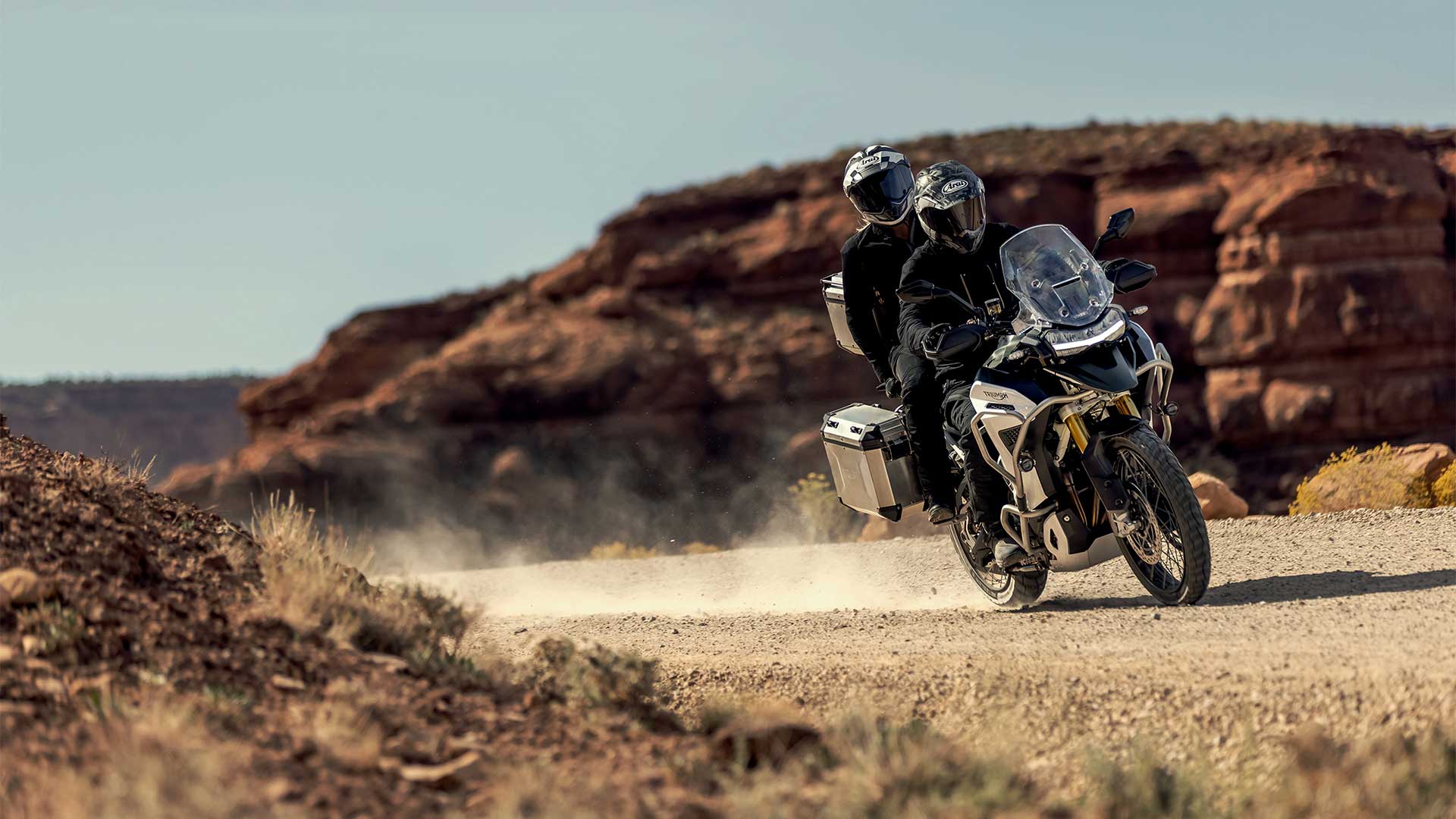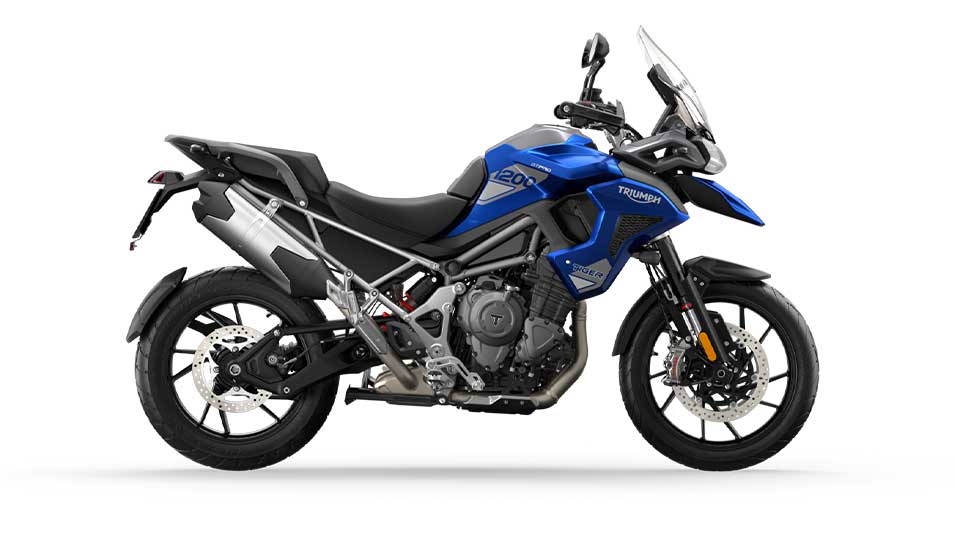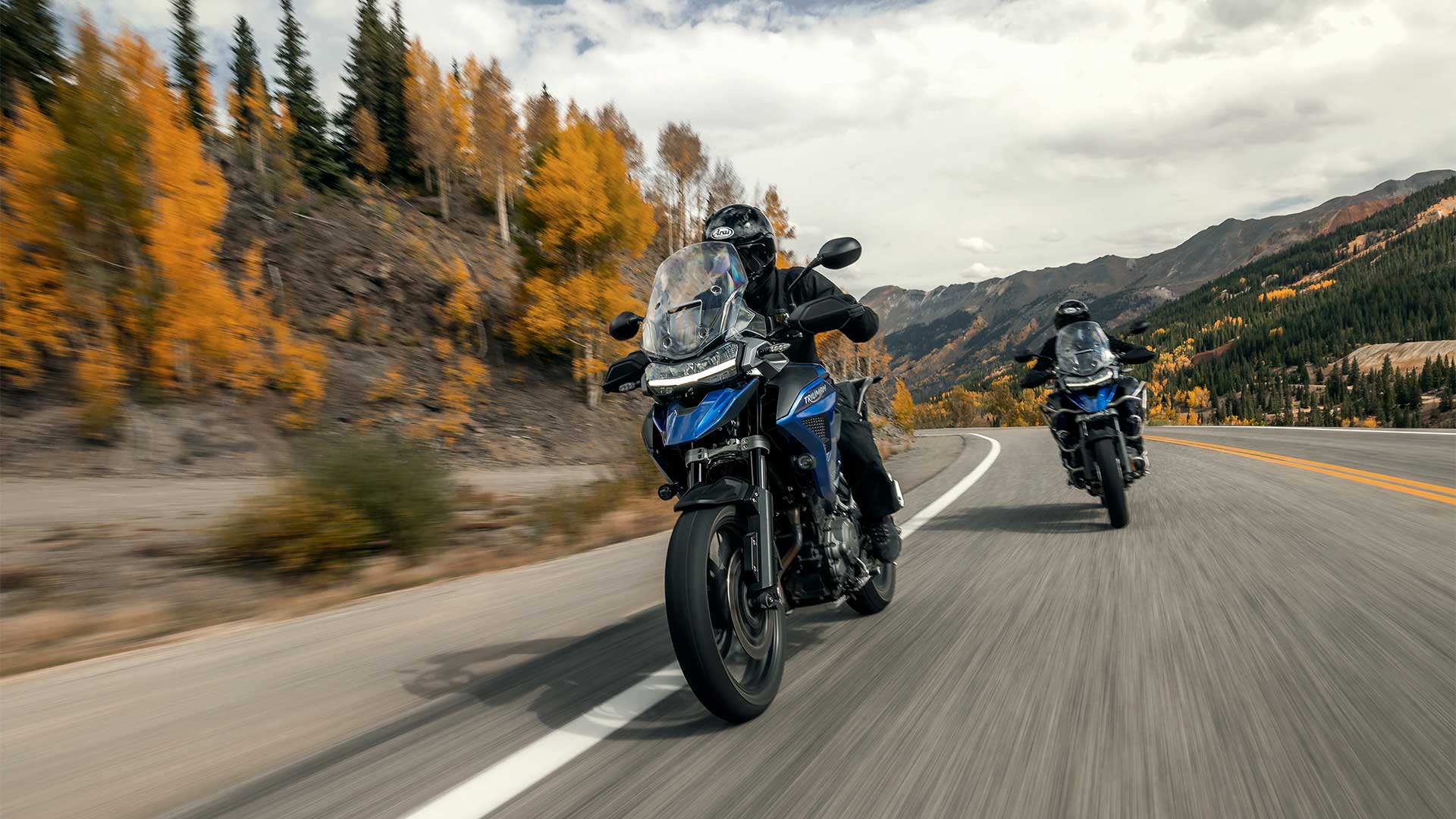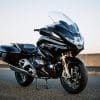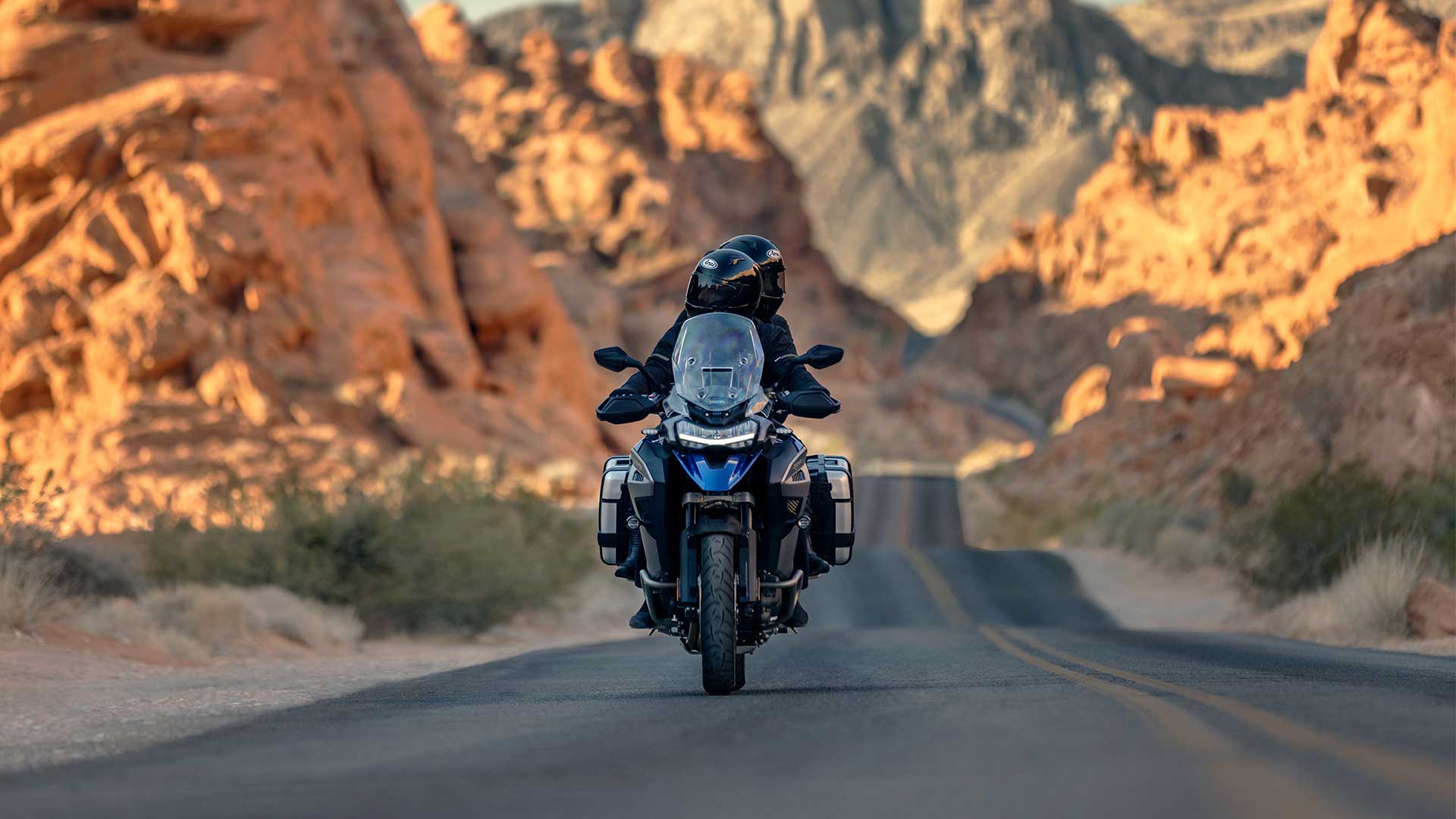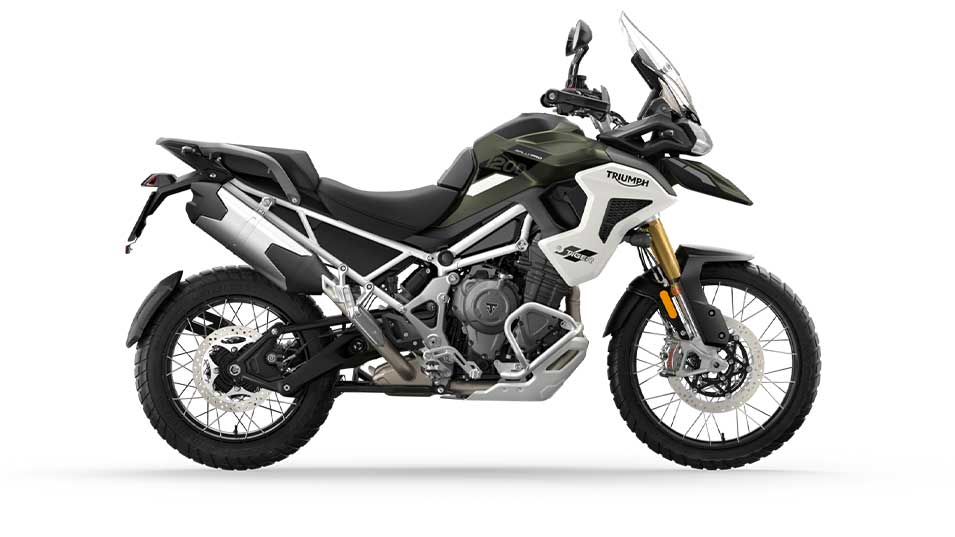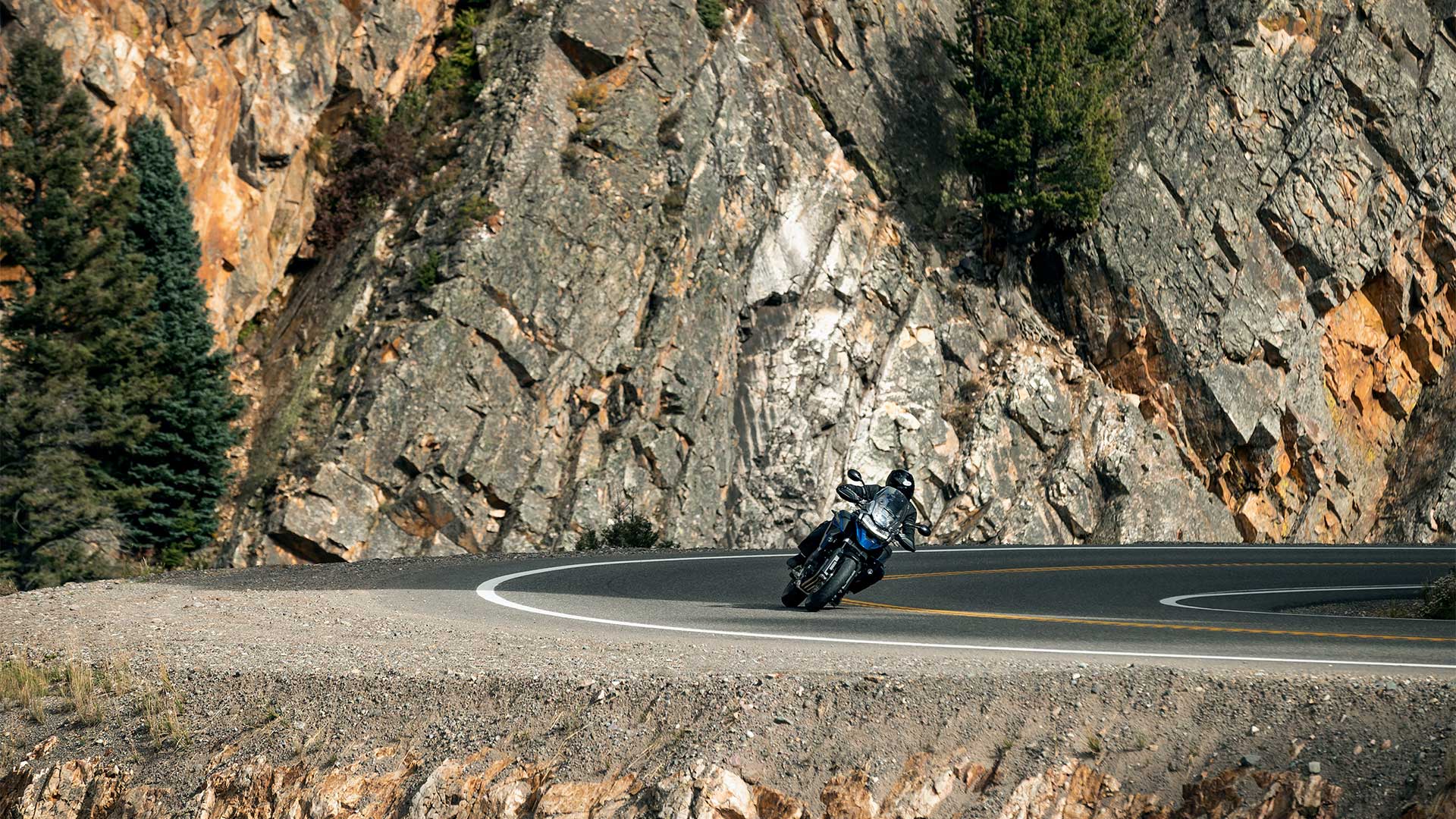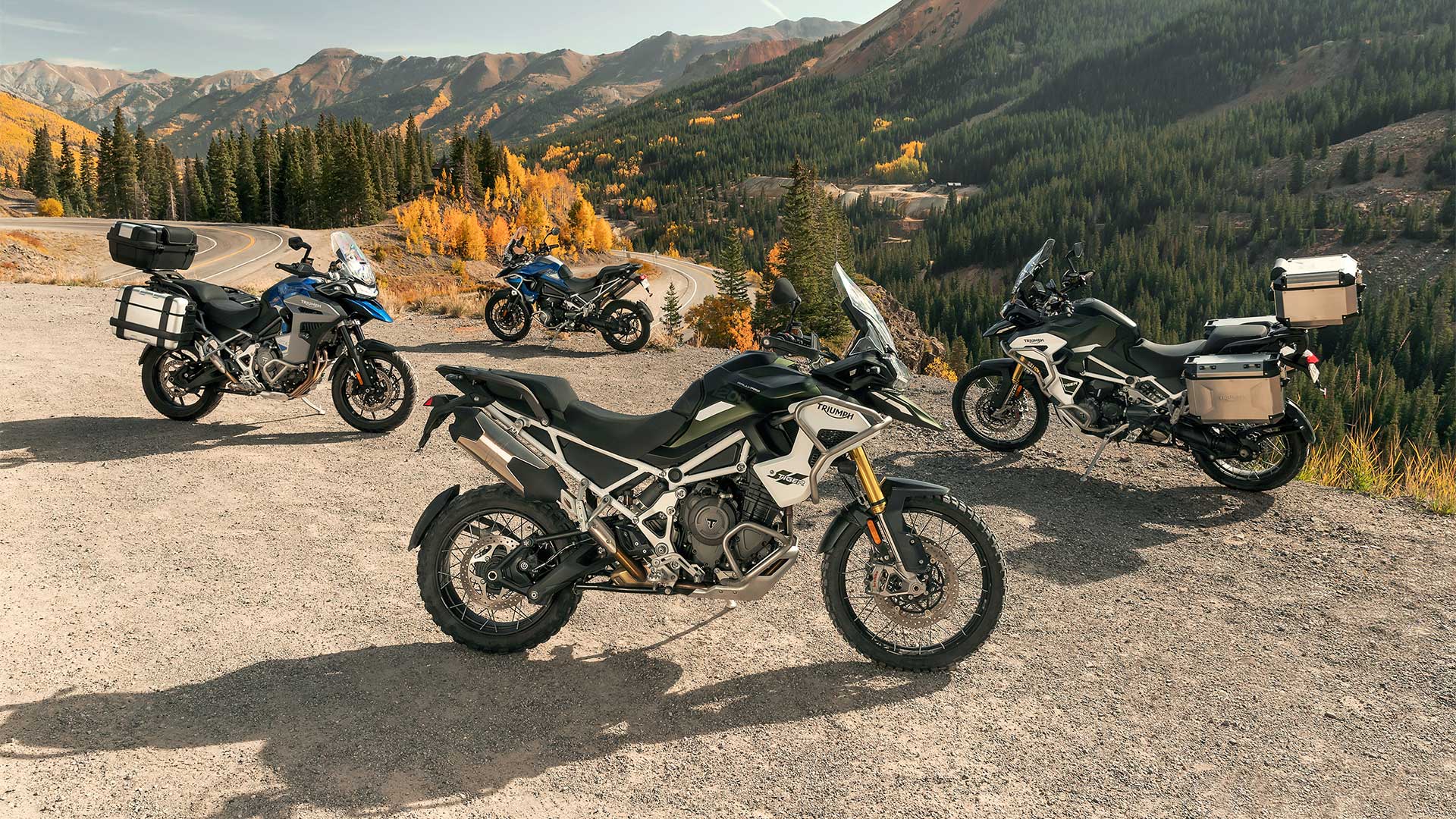Triumph’s designer for the new 2022 Tiger 1200 – a superb gent by the name of Rodolfo Frascoli – has just undergone an interview with Italian media outlet Motociclismo – and we get a sneak peek of what goes on in the lab when creating a top-notch Triumph machine.
RideApart is right – with the long-anticipated Tiger 1200 dropping premium components such as a blind spot radar (finally!), a fresh inline-triple and a complete repositioning of the bike’s central components, the actual process to creating such a slim, well-balanced machine took more than a few moons.
Let’s take a gander at the interview, translated for your reading pleasure.
When did the project for the new Triumph Tiger 1200 begin?
“The project started in the spring of 2017. It was a very demanding project, because it involved practically all the components of the bike (starting with the engine, which is only partially that of the Speed Triple.)
Everything else was designed starting from a [blank piece of paper].”
Where did the inspiration for the design come from?
“First of all this had to be a ‘super Tiger’. It is clear that when it comes to the evolution of a model, it is necessary to know and study [the model that came before]…which in this case was a great bike, but with different characteristics.”
“The previous Tiger is a bike that many have loved – a great traveler. The new Tiger 1200, on the other hand, has raised the bar (both for the “adventure” side and for the tourism side). It had to be light, nimble and slim. These inputs have been a strong stimulus for me, they have guided me in development.”
“As we were developing the sibling Tiger 900, we saw that the bike was doing very well, so we also took some [aspects] of that bike [to] the Tiger 1200 as well – aspects such as the setting of the front area with the beak and the lights.”
“With the 1200, however, we have a much more sophisticated bike.”
The range includes the new Explorer versions with a 30-liter tank, while the standard versions have a 20-liter tank. Were the projects developed [at the same time] or were they carried out in two stages?
“The projects were created almost [at the same time]. We started first with the 20-liter, even though the 30-liter was already planned from the start. The Explorer versions share all the technical base, part of the rear and the front…everything else, the whole central area, including the positioning of the radiators, is different. “
Was it difficult to integrate the 30-liter tank into the lines of the bike?
“It wasn’t easy at all.”
“My will and Triumph’s was to make a 30-liter version that was slim enough…not exaggerated in width. Having an ad-hoc technical base helped us a lot. For example, the radiators have been moved compared to the 20 liters, so that you can have a tank that is not too large.”
“In addition, the central area remains quite narrow. We have positioned the tanks so as not to affect the handling of the bike too much. “
In all, we have five versions of the bike, how was the design approach?
“It was very demanding, from the very beginning. Right from the start we worked on both versions of the front wheel, at the same time. The bike had to be beautiful with both the 21 ‘and the 19’.”
“This is a bit like what we have also done with the Tiger 900, but here we also have the version with the 30-liter tank. In short, [we had] four motorcycles that had to be proportionate, beautiful and harmonious…with very different attitudes.”
What was the most difficult point to draw?
“The radiator area, which has positively affected all air flows.”
“We worked a lot on this aspect, to ensure that there was maximum comfort, to keep the hot air away from the rider as much as possible. [It was a] very difficult area, but I am very happy with it, [especially] the central part with its structural aluminium plate. It is not a decoration – it supports the motor [and] the rear subframe. That whole area was designed with the aim of lightness. This is the [thinnest]…that plate could be made. All the components of the central area were drawn together.”
“Altogether, there was a great synergy with the Triumph engineers “.
So, is the central area of the bike the one you are most proud of?
“Yes, along with the tank. The top, the surfaces, the edges… I love the tank. And then the headlight, which represents an important step compared to that of the Tiger 900. It has cornering lights, a very spectacular DRL.”
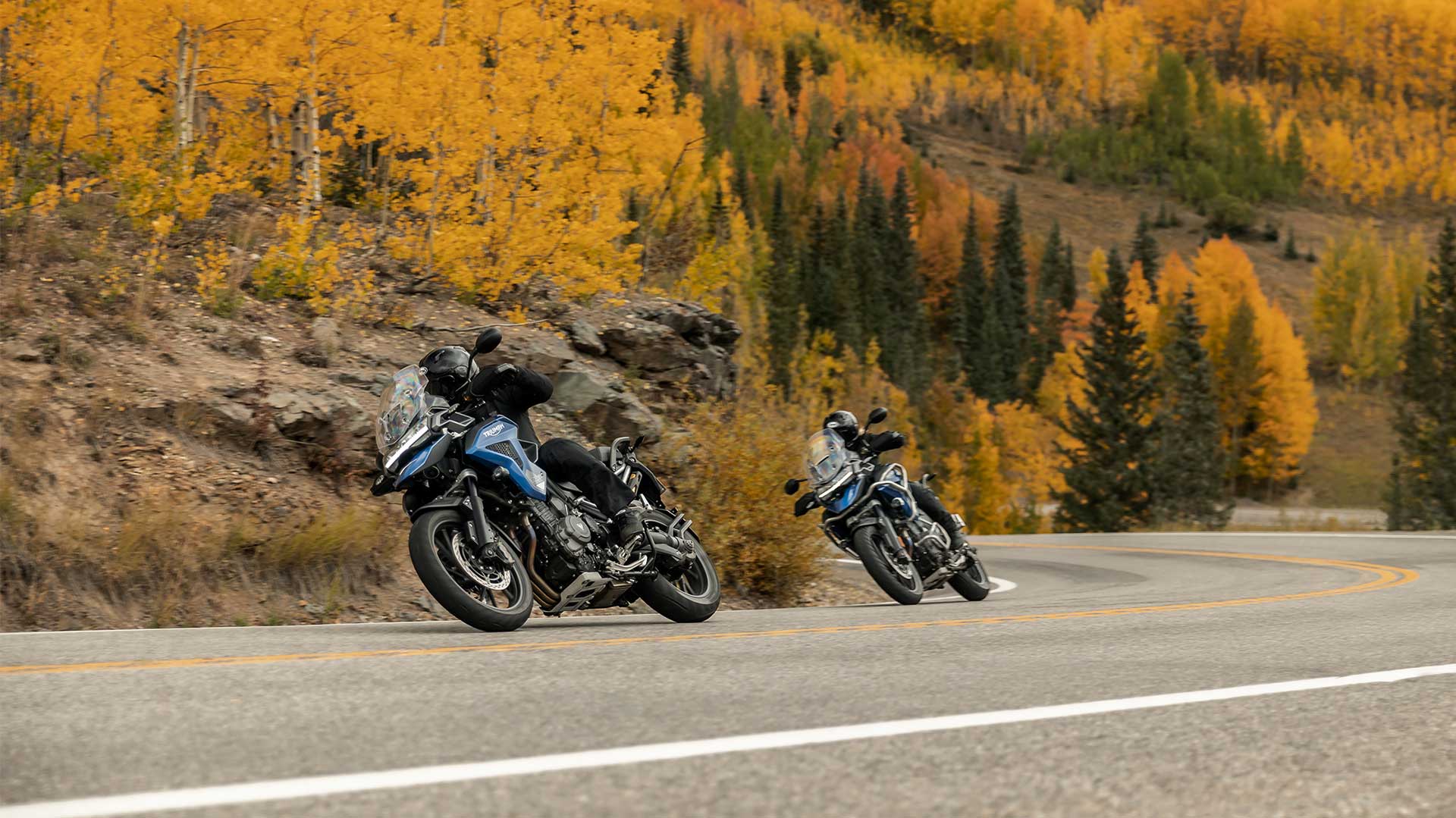

A very compact terminal also catches our eye
“When we saw the first prototypes we didn’t even believe it was possible to have such a compact exhaust. We have succeeded in that we have designed everything from scratch and we have been able to move the volume of the exhaust very low, in order to have a very thin muffler.”
Were there any design constraints imposed by the needs of Triumph designers / engineers?
“There was total openness on their part. This was a very important project for Triumph, and therefore there was maximum availability and a great openness to the search for new solutions. Just look at the central area – so narrow considering it is a 1200. This is thanks to the fact that we have studied a very compact airbox.”
“What satisfies me most is that we have managed to obtain an exciting bike without any sacrifice in terms of comfort, aerodynamic protection and ergonomics.”
On the top of the range versions there is the Triumph Blind Spot Radar System. Was it difficult to integrate these components into the lines of the bike?
“It is an element that has several constraints in terms of homologation and angle of visibility. We didn’t have much of a choice about its placement. It is there (under the rear luggage rack), because it has to go there.”
Tell us about the long range of accessories / options
“Yes, the development of accessories went hand in hand with that of the bike, as we did with the Trident 660, Tiger 900 and Tiger 660 Sport. And that’s a huge commitment, but a huge plus. It is true that you have to foresee a series of extra components, but when you design them you can draw them together with the bike.”
Let us know what you think by dropping a comment below. Be sure to also check out recent articles from our archives, and as always – stay safe on the twisties.


